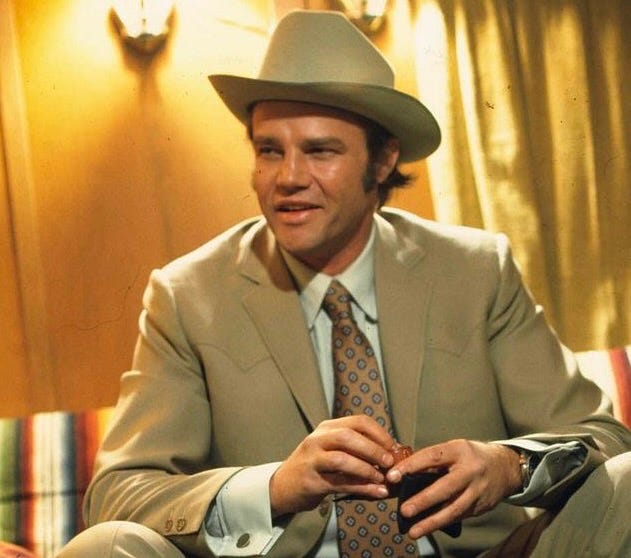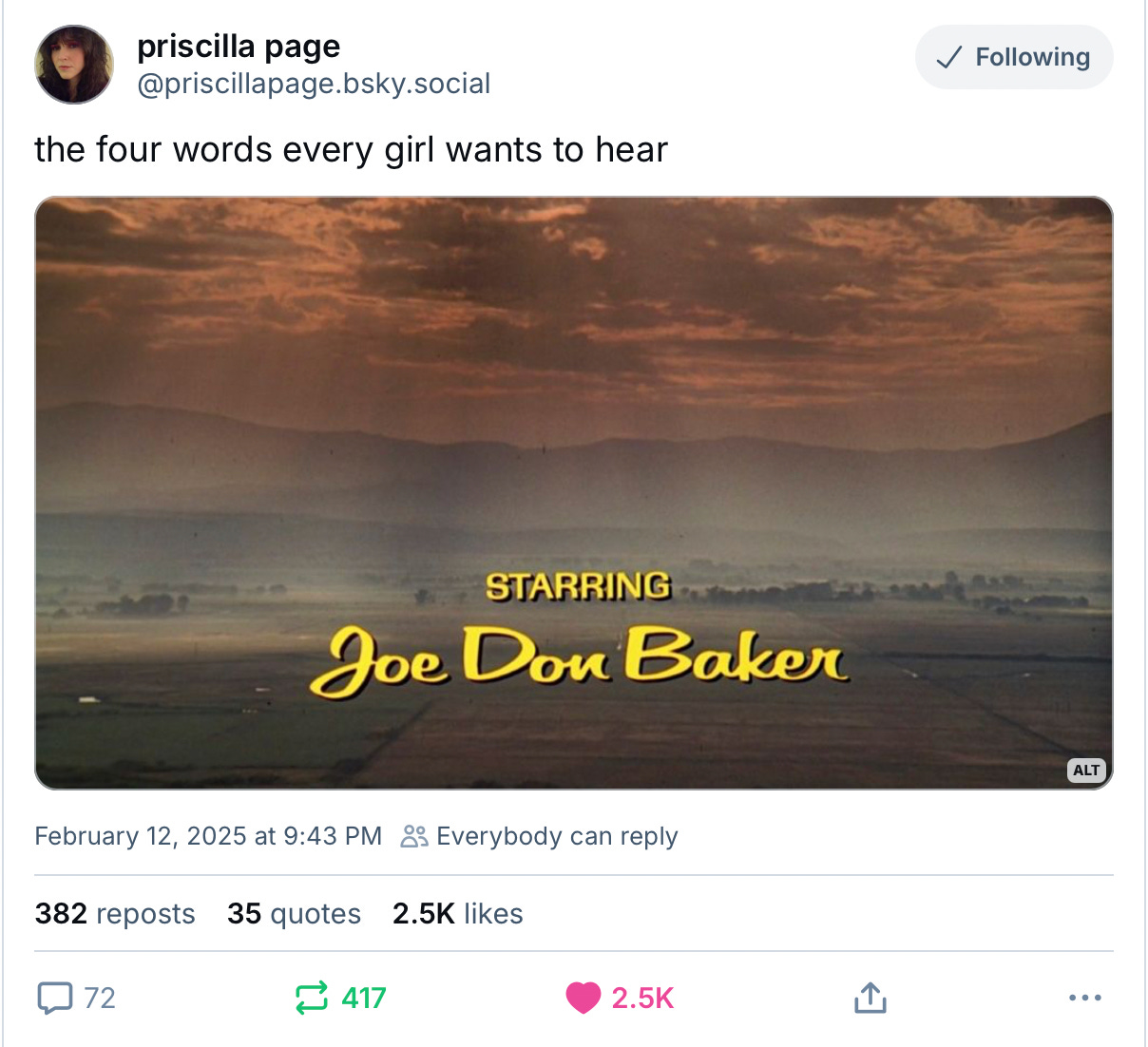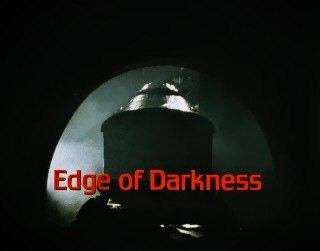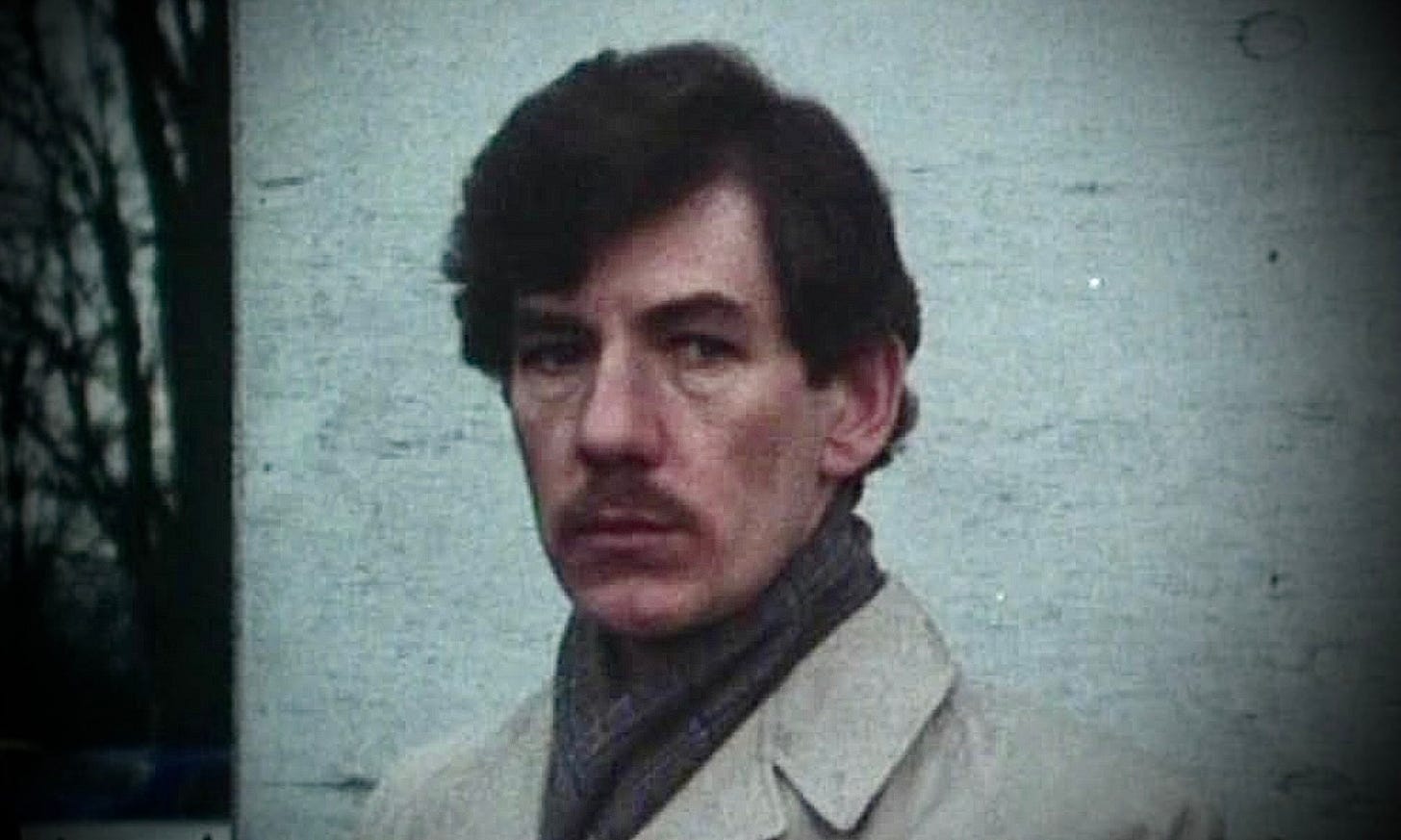TT 489: EDGE OF DARKNESS and DYING DAY
1980's English thrillers made for television, written into my psyche in indelible ink
Presumably almost everyone can recall certain entertainments they saw on television as a child or young person.
Most you forget. But some you remember.
This introspective musing was prompted by critic Priscilla Page, who recently posted something on Bluesky that made me laugh out loud:
I’ve seen some of the more famous movies that feature Joe Don Baker, including Charley Varrick, The Outfit, and various James Bond entries.

To his credit, Baker doesn’t ever really seem like he’s acting. He simply embodies the genial big-boned Southern tough guy, immensely likable or terrifying.
Internet consensus suggests that Baker’s best role was in the 1985 BBC serial Edge of Darkness, where he was airlifted (in character) into something rather more sophisticated than most of his filmography. I first saw the series as a kid, and in time I’ve placed Edge of Darkness in the pantheon of British television espionage alongside Tinker, Tailor, Soldier, Spy and The Sandbaggers.
Baker plays a Texan CIA agent who helps a troubled policeman unearth the larger truth about a terrible murder. Bob Peck stars in a career-defining role; Troy Kennedy-Martin created the magnificent story and script; Michael Kamen’s evocative score features Eric Clapton; it was smartly directed by Martin Campbell (who eventually demeaned himself by helming a much lesser remake starring Mel Gibson).
Edge of Darkness is in the splendid tradition of a dozen ’70s paranoid thrillers, and on this occasion nuclear power is the worrisome threat. (Margaret Thatcher appears on TV for an extended sermon about nuclear deterrence.) The humor is quite good. One of Kennedy-Martin’s influences was probably darkly comic spy novelist Ross Thomas: Joe Don Baker’s outsized, poetic, yet practical Texan is straight from something like Briarpatch (which had won an Edgar as Best Mystery/Suspense Novel of the Year in 1984). Bob Peck’s performance as a bereaved father who manages to remain (mostly) professional is famous, but Baker also frequently underplays meaty lines of dialogue.
A favorite Baker line, when happily watching Come Dancing on the telly: “Nobody dances like the British! They deserved the Falklands.”
Men at work. Not satisfied with one compelling pair of leads, the series offers a wonderful secondary duo, Ian McNeice and Charles Kay, two casually confident bureaucrats who seem to have the run of the British security services. It is too good when McNeice snobbishly tells Peck, “We have no intention of putting you in the picture — that’s what we’re paid for.”
(The women have less to do, but daughter Joanne Whalley is luminous and team member Zoë Wanamaker is saucy.)
Perhaps the series is a bit overlong by modern standards, they could have said it all in four hours, not six. The confused and hard-to-see invasion of Northmoor facilities in the 5th episode is the series’s weakest moment. (Later on, director Campbell would become vastly more competent dealing with standard action movie material, notably in the Bond reboot Casino Royale.) Still, the ending of the same episode boasts one of the most unexpected and delightful cliffhangers I’ve ever seen, with a forest of dusty phones including a long-forgotten hotline to Downing Street and Bob Peck screaming into the receiver, “Get me Pendleton!”
Edge of Darkness was first shown on American TV in 1986. I was 13 and spending a summer week staying with my uncle, Todd Anderson, the only musician in the family. He lived in Two Harbors, Minnesota, but would have been right at home in Nashville or working in the backing band at Austin City Limits. (Uncle Todd could get by through ear on literally any instrument utilized in modern country.)
After hearing Clapton on Kamen’s soundtrack I picked up my uncle’s banjo and tried to play something that would suit the recurring image of a train hauling nuclear waste. I remember this moment — holding the banjo, bending the strings in a vocal way, thinking about nuclear waste and Bob Peck — very clearly.
Anybody else recall “Dying Day?” This was a serial from Armchair Thriller, an ITV series made in 1978 and 1980.
The story and script was from John Bowen; director Robert Tronson manages to create reasonably attractive visual compositions on a tight budget. However, the four 25-minute episodes of “Dying Day” stay somewhat in the conversation only thanks to a star turn by Ian McKellen in one of McKellen’s earliest performances on video. The future icon makes the most of his role, an unexceptional man trapped in a web of extraordinary circumstances. Each episode begins with McKellen saying in voiceover, “My name is Anthony Skipling,” a sentence that becomes less secure and more desperate as the series progresses.
While “Dying Day” is found on a few “best of McKellen” lists, the overall production has not stood the test of time; certainly it cannot be recommended in the same breath as Edge of Darkness. (When placed side by side, there is only one arena where ITV beats the BBC: When all is revealed, the title “Dying Day” turns out to be absolutely perfect, as compared to the title Edge of Darkness, which is pretty bland and forgettable.) The puzzle story has undeniable flair, but twists and turns this outrageous play more like something out the Twilight Zone than a remotely believable thriller. McKellen sells the long con, and that’s the only reason to watch in 2025.
(Ray Banks informs me that Ian McKellen and Bob Peck can be seen together alongside Judi Dench in a famous version of Macbeth from Trevor Nunn's Royal Shakespeare Company; the Peck Wikipedia entry even claims that McKellen credited Peck as a mentor when they were both at the RSC. Have you subscribed to Under the Influence yet? This post is sort of “Ray Banks lite.” )
The flaws are obvious, but I will always adore “Dying Day” simply because it landed like a ton of bricks. Several episodes of Armchair Thriller were broadcast in America as part of Mystery! on PBS, and I watched them when I was nine or ten years old. “Dying Day” gave me not just nightmares, but visions of Anthony Skipling haunting the Downsville Elementary School playground. How great is that?
The other one-off show in somewhat similar vein that made an epic impression was One of My Wives Is Missing, a 1976 ABC teleplay starring James Franciscus, Elizabeth Ashley, and Jack Klugman. When I finally chased this down and rewatched as an adult it turned out to be a rather campy disappointment — although Joss Whedon also remembers being impressed with it as a kid, so there was definitely something there at the time.
From the more conventional action genre, both Duel (Spielberg’s early TV shoot jumped across the aisle into a widely-seen movie, and it’s still great) and Death Hunt (a semi-forgotten Charles Bronson vehicle recently semi-praised by Quentin Tarantino) also took up permanent residence in my developing cerebral cortex.
I like this topic, and encourage my readers to leave their own “never to be forgotten” entertainments seen as children or teens in the comments…






Will look for these. It's kind of a cliche for a 90s kid but seeing 'Reservoir Dogs' on video at about 11 or 12 was a huge hit for me. My room was soon filled with Tarantino "merch" and I would listen to the Tarantino double soundtrack CD most mornings before junior high. I still have notebooks filled with terrible copycat short stories from that time. My guitar teacher during those years was pretty cool, and told me Tarantino was just riffing on Sam Peckinpah. Of course as an adult I realize the reservoir of information, movies, books and music those movies are drawing from is seemingly endless and am just getting around to understanding Peckinpah, though I agree with my guitar teacher, "Bring me the head of Alfredo Garcia" was his best film, (also the Jerry Feilding score is great).
Edge of Darkness is quite possibly one of my favorite shows. Quite incredible you can't find it on Britbox! The mind reels at how many great shows could be rediscovered and enjoyed. One I'll never forget has to be The Persuaders. As a kid I was obsessed with the opening credits and John Barry's score - that might be the one reason I started taking piano lessons. Roger Moore is still dear to my heart but now I live in the US I love Tony Curtis's character even more!